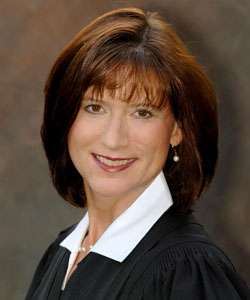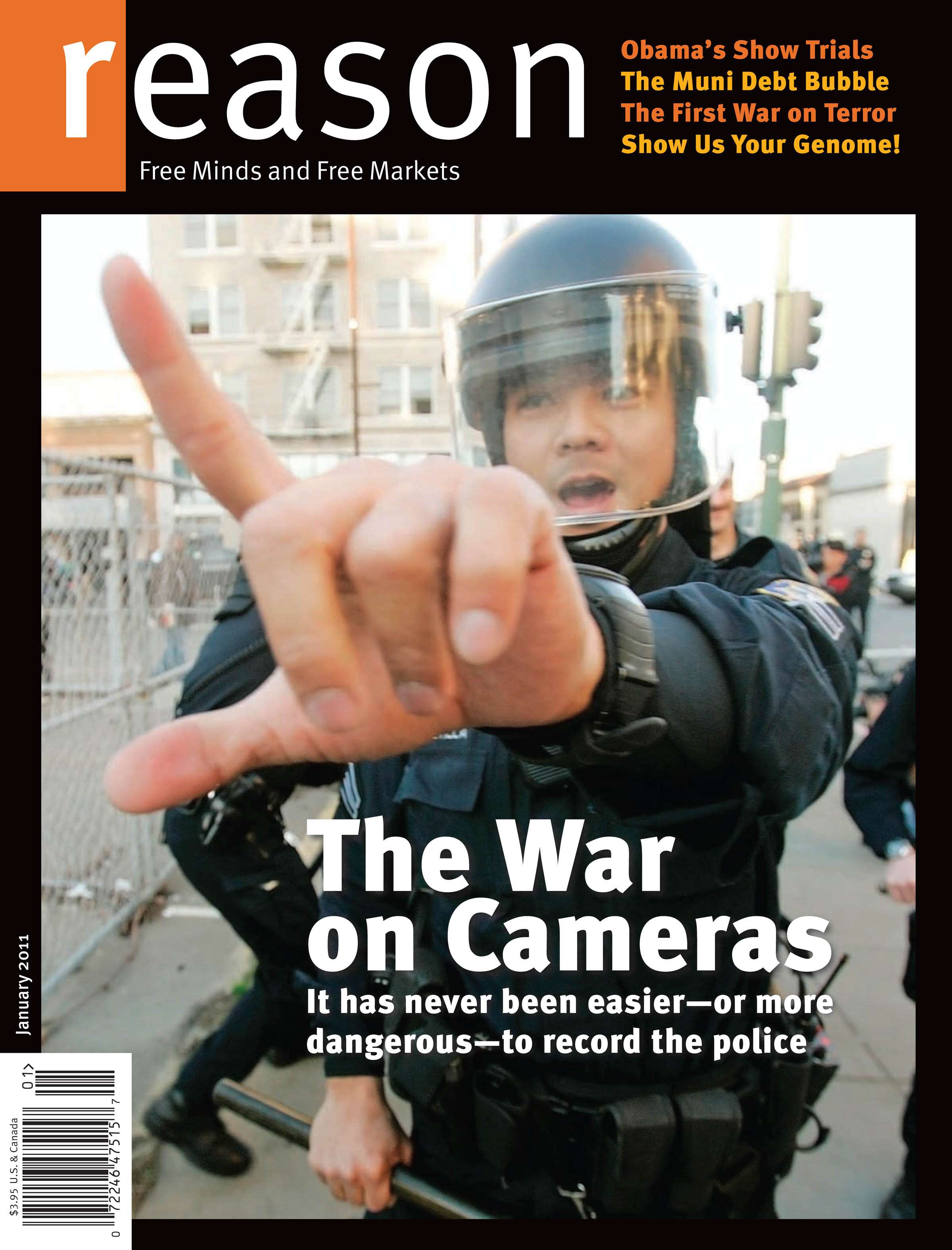Trump SCOTUS Contender Diane Sykes on the 1st Amendment Right to Record the Police
A review of Judge Sykes's majority opinion in ACLU of Illinois v. Alvarez.

Judge Diane Sykes of the U.S. Court of Appeals for the 7th Circuit is one of the 21 names floated by President-elect Donald Trump as a possible replacement for the late Justice Antonin Scalia on the U.S. Supreme Court. Most conservatives would probably welcome a Sykes nomination, as she is a respected figure on the legal right and a favorite among the Federalist Society's rank and file. But liberals—or at least those liberals who genuinely care about civil liberties and criminal justice reform—might also find at least one reason to cheer a Sykes nomination. That reason is Sykes's role in advancing the First Amendment right to record the police. Here's the story.
In 2012 the U.S. Court of Appeals for the 7th Circuit decided the case of American Civil Liberties Union of Illinois v. Alvarez. At issue was an Illinois "eavesdropping" statute that made it a felony offense, punishable by as many as four to 15 years in prison, for recording "all or any part of any conversation" without first receiving the consent of all parties to that conversation.
The ACLU of Illinois had a big problem with that statute. The organization had recently formed a Chicago-area "police accountability project" whose objectives included recording police officers, without their consent, while those officers were carrying out their official duties in public. To prevent its people from being prosecuted as felons, the ACLU of Illinois filed suit in federal court against Cook County State's Attorney Anita Alvarez, seeking an injunction that would bar Alvarez from enforcing the eavesdropping law against individuals whose only "crime" was the act of recording the police in public. To enforce the eavesdropping statute in such a manner, the state ACLU insisted, would be a fundamental violation of the First Amendment.

State's Attorney Alvarez took a different view. In the words of Judge Diane Sykes, who wrote the 7th Circuit's majority opinion in the case, "the State's Attorney has staked out an extreme position. She contends that openly recording what police officers say while performing their duties in traditional public fora—streets, sidewalks, plazas, and parks—is wholly unprotected by the First Amendment."
Judge Sykes then proceeded to explain why the state's attorney was wholly wrong about the scope of this constitutional provision. "The eavesdropping statute restricts a medium of expression—the use of a common instrument of communication—and thus an integral step in the speech process," Sykes wrote. "As applied here, it interferes with the gathering and dissemination of information about government officials performing their duties in public. Any way you look at it, the eavesdropping statute burdens speech and press rights and is subject to heightened First Amendment scrutiny."
Judge Sykes then issued a preliminary injunction forbidding the state's attorney from applying the statute in that manner. Two years later, in a decision that both cited and quoted repeatedly from Judge Sykes's Alvarez opinion, the Illinois Supreme Court struck down the state's eavesdropping statute as an overreaching violation of the First Amendment. It was a major victory for free speech, civil liberties, and criminal justice reform and it came about thanks in no small part due to the judgment of Diane Sykes.
Related: The Trouble With Trump SCOTUS Contender William H. Pryor


Show Comments (98)